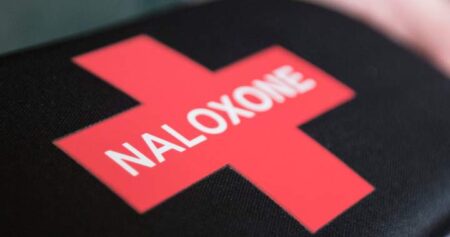The Liberals should move “immediately” to fix eligibility rules around the federal government’s $1.6 billion annual Indigenous procurement program, a cross-partisan committee of MPs says.
In a report tabled Friday, the House of Commons’ Indigenous and Northern Affairs committee noted longstanding concerns that non-Indigenous companies are gaming the system to gain access to federal contracts meant for First Nations, Métis and Inuit companies.
Last year, Global News, in partnership with the First Nations University of Canada, revealed widespread concerns that non-Indigenous companies were finding ways to circumvent lax verification rules to convince the government they were at least 51-per cent owned by Indigenous people — opening the program up to fraud and abuse.
The alleged schemes range from “rent-a-feather” agreements, where an Indigenous person is brought on as a figurehead for a non-Indigenous company’s bid, to outright misrepresentation.
“When non-Indigenous companies masquerade as Indigenous-owned, or when they install token Indigenous partners with no real decision-making authority, they divert the resources away from those who truly need them,” Waceya Métis Society President Anthony Wingham told the Commons committee.
“This practice not only undermines the credibility of set-asides and other supportive measures, but also removes the optimism from young entrepreneurs who see how easily outsiders exploit the system. They ask how we can compete on a level playing field, how we can ensure that the contracts are actually reserved for our communities and why enforcement is so lax that some people can simply game a system designed to lift us up.”

Get breaking National news
For news impacting Canada and around the world, sign up for breaking news alerts delivered directly to you when they happen.
The issue was sufficiently concerning that MPs said the federal government should immediately work — alongside Indigenous communities — on a temporary fix while “longer term reforms” are worked out.
The Procurement Strategy for Indigenous Business (PSIB) has been around since the late 1990s, first encouraging and then requiring federal departments to set aside a specific percentage of contracts for Indigenous-owned and operated firms.
The program was intended as a form of economic reconciliation, and for Indigenous economic development — allowing smaller First Nations, Inuit and Métis businesses to compete with more established national and multi-national companies for federal contracts.
But Global’s investigation also revealed that Indigenous Services Canada (ISC), the department responsible for maintaining the government’s central list of qualified Indigenous suppliers, infrequently audited companies to determine if they were, in fact, 51-per cent Indigenous owned and operated.
Global News asked ISC if they had accepted the committee’s recommendation, but the department did not respond as of the time of publication.
The department’s own internal audit into the PSIB, released earlier this year, found many of the concerns about the program were well-founded.
The audit found an “absence” of standardized processes for verifying a company is Indigenous-owned and -operated, no procedure for assessing “complex” claims of Indigenous ownership, and “gaps” in staff training leading to inconsistent scrutiny for businesses applying to be listed as Indigenous suppliers.
While the Indigenous Businesses Directory (IBD) had 2,925 active listings in August 2024, auditors found, the department had just 215 audits conducted in the 2023-24 fiscal year.
And the audit suggested that a significant number of those companies listed as “Indigenous” by the federal government lacked supporting documentation to prove their claims.
“A random sample of 50 Indigenous businesses revealed that 68 per cent of cases had missing or incomplete verification documents,” the audit report read.
The program also had “significant gaps” in “the integrity, compliance and effectiveness” of the processes to verify companies were run by Indigenous people, auditors found.
“Key areas of concern include those related to the adequacy of monitoring, consistent audits, completion of risk assessments, sufficient preventive controls, the existence of formal reporting mechanisms and specialized training for staff,” the auditors said.
“Immediate actions to strengthen controls, expand capacity and implement standardized procedures are critical to improving the integrity of the PSIB.”
© 2025 Global News, a division of Corus Entertainment Inc.
Read the full article here














